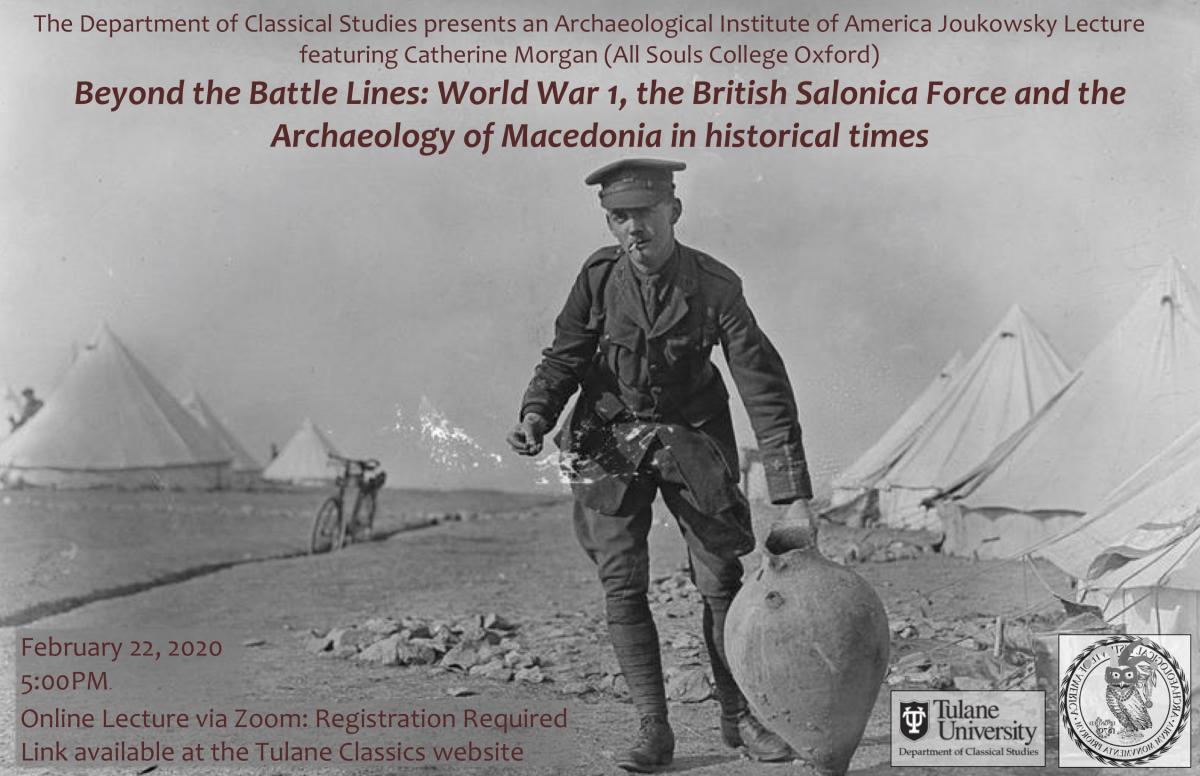
The Department of Classical Studies at Tulane University presents
an Archaeological Institute of America Joukowsky Lecture
featuring Catherine Morgan from All Souls College Oxford
Beyond the Battle Lines: World War 1, the British Salonica Force and the Archaeology of Macedonia in historical times
Monday, February 22, 2021
5:00PM
Online Lecture via Zoom: Registration Required
Register in advance for this meeting.
After registering, you will receive a confirmation email containing information about joining the meeting.
Abstract:
The archaeological activity of the allied armies which mustered on the Salonika Front from 1915-1918 forms a distinct episode in the history of research into ancient Macedonia. At that time, Thessaloniki – a city deeply affected by two Balkan wars, cosmopolitan and only recently incorporated into the Greek state – had suddenly become home to a truly international military contingent, from the British and French armies (with their imperial troop) to refugee communities, notably Russians. Archaeology for these forces variously represented an exercise in research, an important means to maintain relations with Greek authorities, and a way to occupy its officer class and troops.
Prehistoric and Early Iron Age finds have long attracted attention: the pioneering archaeological and ethnographical work of Alan Wace and Maurice Thompson provided a framework and system for the recording of discoveries in the British zone from the Vardar river to the Strymon delta. Yet the work of the British School pre-war and of the British Salonika Force thereafter resulted in discoveries of all periods which in many cases remain of significance today. This lecture presents three case studies dating to the Archaic-Hellenistic periods – Classical-Hellenistic finds in the area then identified as ancient Lete (in and around Aivatli and Laina along the Derbend Pass), late Archaic-Classical burials from Aivasil/Agios Vasilios, and a fifth-century burial from Mikro Karaburun/Karabournaki. Together, these finds represented a step change in our knowledge of central Macedonia before the foundation of Thessaloniki, reflecting a new, topographical rather than text-led approach to the archaeological record driven by the military requirements of the campaign.
The significance are assessed in the context of previous exploration of the region, noting the crucial if sometimes tangental involvement of the British School at Athens, and the connection between the pioneers in the region (notably Alan Wace and Maurice Thompson), and leading figures in the Salonica Force’s archaeological authority (especially Ernest Gardner)."

